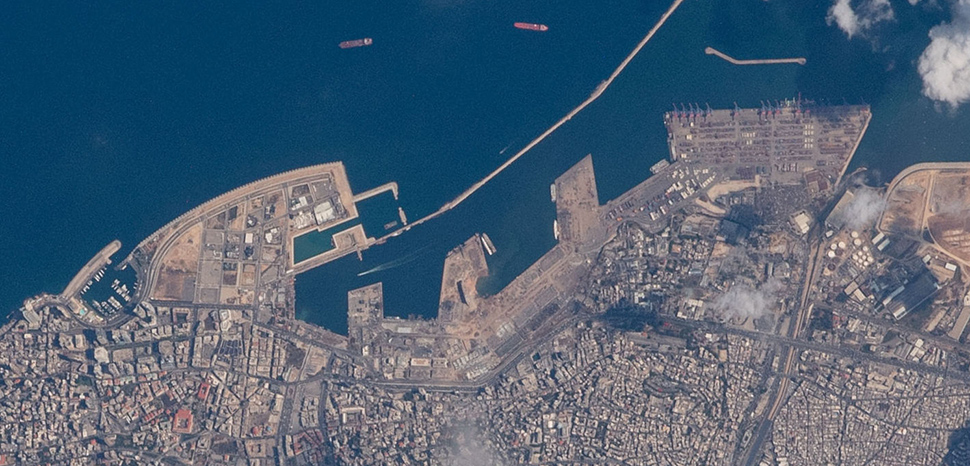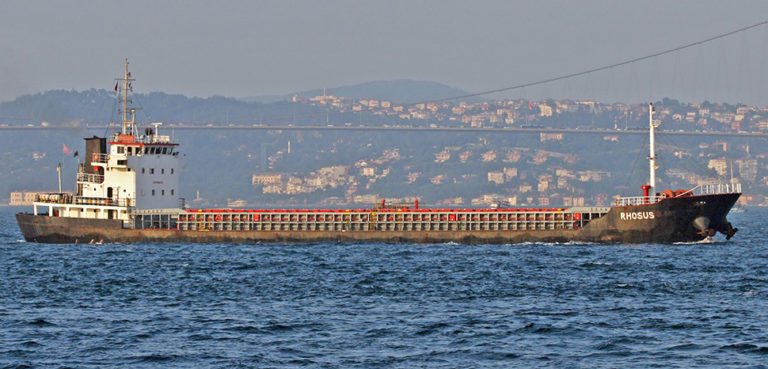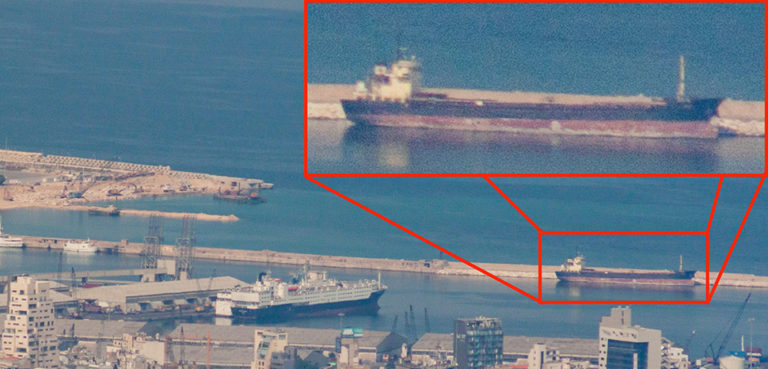The Lebanese investigation into the explosion at Beirut port has faced repeated delays since its launch in August 2020. This impasse is largely due to high-level political interference and Lebanon’s lack of judicial independence. In the most recent development, Judge Tarek Bitar, the lead investigator of the case, attempted to resume his inquiry into the blast in January of this year after a year-long suspension. He issued new charges against senior and mid-level Lebanese officials and politicians. However, two days later, Bitar faced a challenge from Lebanon’s top prosecutor, Ghassan Oweidat, who is the public prosecutor at the Court of Cassation. Oweidat claimed that Bitar proceeded with his investigation despite legal challenges.
Notably, Lebanese politicians allegedly involved in the Beirut port explosion have previously filed multiple legal requests to dismiss Bitar, mainly accusing him of political bias. This led to the suspension of the investigation in December 2021. Similarly, Bitar’s predecessor, Judge Fadi Sawan, the initial judge appointed to lead the investigation, was also removed from the case in February 2021 after charging senior politicians in connection with the investigation.
In response, Oweidat brought charges against Bitar for allegedly overstepping his judicial powers. He ordered the release of all suspects detained in connection with the case and issued a travel ban against Bitar. In February 2023, Bitar announced that he had postponed the hearings until the dispute with the public prosecutor’s office was resolved. At this point, the domestic investigation appears to hinge on which legal theory will prevail due to the judicial stand-off between Bitar and Oweidat.
The massive explosion at the port on August 4, 2020 killed more than 200 people, destroyed large sections of Beirut, and displaced over 300,000 residents. It was caused by the detonation of a large amount of ammonium nitrate that had been stored in one of the port’s warehouses since October 2014 without adequate safety measures.
Like many other significant investigations in Lebanon, the domestic inquiry into the port explosion was largely sidelined for political purposes, as it allegedly implicated multiple Lebanese authorities and officials, raising the possibility of criminal liabilities. In the months and years following the explosion, various national and international actors called for an independent United Nations investigation, recognizing the lack of progress in the domestic investigation. However, no resolution has yet been put forward by the United Nations Human Rights Council (UNHRC) in connection with the investigation, and bringing to justice those responsible for the explosion has yet to happen. Additionally, foreign investigations were conducted by the United States Federal Bureau of Investigation (FBI) and the French police, but no investigation has led to conclusive findings.
Nevertheless, despite the official Lebanese investigation being at a standstill and inconclusive findings from foreign investigations, early investigative research conducted by media organizations uncovered crucial evidence and findings related to the explosion. The investigative unit of Lebanese television station Al Jadeed presented official documents indicating administrative negligence by ministry officials and representatives involved in handling the ammonium nitrate cargo, which ultimately led to the devastating explosion in Beirut. The Sarajevo-based investigative media organization, Organized Crime and Corruption Report Project (OCCRP), initially investigated the ship that transported the ammonium nitrate cargo to Beirut port, revealing ownership details and connections to controversial individuals. Later, OCCRP delved deeper into the purchase of the ammonium nitrate cargo, exposing the alleged involvement of a company connected to Ukrainian individuals and part of a network of shell companies. Amsterdam-based open-source investigation outlet Bellingcat conducted visual investigations, concluding that a fire and smaller explosion triggered the massive detonation that devastated the city. London-based human rights research agency Forensic Architecture (FA) conducted an open-source investigation using geolocation analysis and 3D modeling to reconstruct the events leading to the explosion. They concluded that negligence in storing the ammonium nitrate by Lebanese officials was the cause of the explosion.
Subsequent investigations carried out by media outlets, advocacy organizations, and international human rights groups have also yielded more comprehensive analyses and unveiled new discoveries regarding the explosion. For instance, legal advocacy organization Legal Action Worldwide (LAW) submitted a report on behalf of the victims, providing intricate details about the handling of the ship that transported the ammonium nitrate to the Beirut port. The report highlighted failures in the Lebanese investigations. Human Rights Watch (HRW) released a comprehensive report on the investigation, presenting evidence suggesting that multiple Lebanese authorities were criminally negligent in their handling of the ammonium nitrate cargo. The report also contended that officials attempted to impede the progress of the domestic investigation.
Furthermore, in addition to the investigations conducted by media outlets and advocacy groups, and amidst calls for a United Nations investigation, civil lawsuits were filed overseas to bypass the stagnant Lebanese investigation and seek justice for the victims. To date, two significant international lawsuits have been initiated—one in the United Kingdom in August 2021 and another in Texas in July 2022. Notably, these lawsuits drew considerably from the research and findings presented by media outlets and international advocacy organizations.
Following the recent obstructions of the domestic investigation, both national and international human rights groups have intensified their calls and appeals for the establishment of an independent investigation by the UNHRC. Additionally, calls to prioritize judicial reform to safeguard the independence of the Lebanese judiciary and with aim to ensure an impartial domestic investigation into the explosion have also grown stronger in recent months.
National Investigations
The Lebanese government established three national investigations, however, leading to no conviction to date or assumption of responsibility and accountability. Initially, investigations into the hazardous storage of ammonium nitrate at the port were launched before the explosion. Still, they resulted in no actions or directives to remove the explosive and subsequently avoid the tragedy, and the ensuing reports of the investigations are not publicly available.
- On August 5, 2020, an administrative investigation was launched into the port’s explosion, composed of the prime minister, several ministers, and security officials; however, according to Human Rights Watch (HRW), the committee seemed to have ceased working after the resignation of the then Lebanese prime minister on August 11, 2020.
- A second investigation was set up on the same day, requested by Lebanon’s Public Prosecutor and led by the Internal Security Forces (ISF). While, according to HRW, an announcement has been made about detaining multiple suspects, the names and charges against them were not made public.
- On August 10, 2020, the public prosecutor referred the explosion investigation to the Judicial Council, a special Lebanese court that investigates and prosecutes serious cases. Since then, two investigators have been consecutively appointed to lead the investigation: first, Judge Fadi Sawan and, later, Judge Tarek Bitar, the latter having a wider scope. Sawan was removed from the case in February 2021 after he charged senior politicians in connection with the explosion.
- Notably, multiple individuals have been arrested, and charges have been brought against former military intelligence officials in connection with the Judicial Council’s investigation. However, according to HRW, mostly mid-to-low-level officials were detained and charged. The investigation was suspended in December 2021 due to political interference and sectarian rifts.
**This article is first in a three-part series examining the Beirut port explosion:
Part two examining early international investigations can be found here.
Part three examining later international investigations and lawsuits can be found here.
Rany Ballout is a Director at Hilton Global Associates, a global risk management firm specializing in investigative due diligence and actionable intelligence. He is a political risk and due diligence analyst with extensive experience in the Middle East. He holds a Master’s degree in International Studies from the University of Montreal in Canada and a bachelor’s degree in Linguistics from Uppsala University in Sweden.




